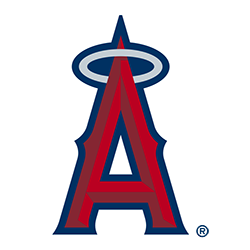While the two sides still have not settled on long-term ballpark plans, it appears that the Los Angeles Angels and Anaheim are about to accelerate their discussions.
Last fall, the Angels effectively sought to open facility discussions by opting out of their Angel Stadium lease. The ballpark is the fourth oldest in Major League Baseball, having originally opened in 1966. It did undergo a major renovation prior to the 1998 season, but those improvements have not aged particularly well, and the Angels are looking for a long-term solution.
Thus far, neither the team nor Anaheim officials have publicly presented details on how that situation could be addressed. However, it seems that the two sides will look at either a new or renovated ballpark at the 155-acre Angel Stadium site, with the facility to anchor ancillary development. Along with potentially providing a revenue source for the Angels and city, such a project would tie into Anaheim’s goal of further developing the area surrounding the ballpark site, dubbed the Platinum Triangle.
It remains to be seen whether a new or renovated ballpark will be at the center of those discussions, though Anaheim officials have recently been signaling expectations for how the negotiations should play out. The city expects a proposal from the Angels by October, while Anaheim mayor Harry Sidhu has laid out his requirements of any agreement. The mayor wants the Angels to pay fair market price for the land—regardless of whether that comes through a sale or a lease—while seeing the franchise commit to certain community benefits, such as making affordable housing part of any development plan. More from OC Register:
On Tuesday, he again stressed keeping the Angels local, saying the city stands to lose “thousands of jobs, millions of dollars in annual revenue, global exposure for Anaheim and a decades-long partnership.”
But he also made clear he wants “fair market prices” for any land sold or leased to team owner Arte Moreno for development, and community benefits such as affordable units as part of any housing that’s built, parks and open space, a grocery and other neighborhood businesses to serve the Platinum Triangle, and a continued stream of revenue for the city’s general fund.
Sidhu didn’t elaborate on whether that revenue could come from a bigger cut of ticket sales or parking, or from advertising and concessions (100 percent of which goes to the Angels now).
Sidhu said city leaders should resist the temptation of selling the land for “short-term gain.”
Until a formal proposal surfaces, it will be hard to tell exactly how the two sides sort out the financial implications of any agreement. There has also been some debate locally about whether the Angels should be required to restore the Anaheim Angels name as part of any agreement, but the organization says that a rebranding is not on the table and Sidhu does not want to make it an issue in negotiations. The Angels have also received overtures from Long Beach, with officials there proposing a new ballpark at a downtown waterfront site that presents some challenges.
There is still much that remains to be settled regarding the Angels’ situation, and whether the team and Anaheim officials can come to a mutually feasible agreement that keeps the team in the city. Still, after months of relative silence surrounding those discussions, the city is publicly presenting some ideas for how an agreement could take shape, and that could set the tone for active talks with the Angels in the coming months.
This article first appeared in the Ballpark Digest newsletter. Are you a subscriber? It’s free, and you’ll see features like this before they appear on the Web. Go here to subscribe to the Ballpark Digest newsletter.

